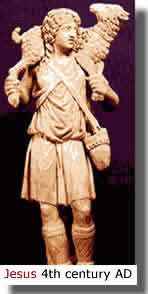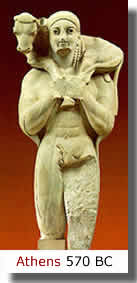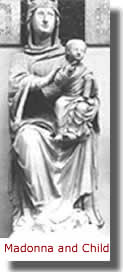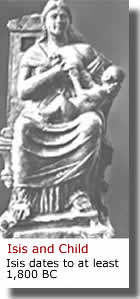Arguably the most famous and widely known verse in the whole NT is John 3:16 For God so loved the world, that He gave His only begotten Son, that whoever believes in him shall not perish, but have eternal life.
In what sense of the words was Jesus (as) the "only begotten Son" of God?
beget (begotten inflected form of beget)
1 : to procreate as the father : sire
2 : to produce especially as an effect or outgrowth
We know that God did not beget or "sire" Jesus in the way that I did my own son, but the second definition may apply. Could God have produced (or created) Jesus as an "effect" from Himself? As in saying the word, "Be" from whence he "was".
In what sense of the word is Jesus God's "son"?
son
1 a: a human male offspring especially of human beings b: a male adopted child c: a human male descendant
2capitalized : the second person of the Trinity
3: a person closely associated with or deriving from a formative agent (as a nation, school, or race)
The definition 1a and 1c have been excluded from the definition of beget above because we know that God did not copulate with Mary (astaghfir'Allah). I also assume that God did not legally adopt Jesus. Although adoption has some benefit to the adopter and the adoptee, there is still no biological connection between the two and the one is not really the son of the other.
Definition 2 should be excluded because it relies upon a nebulous term, "Trinity" as the essential element and because it is a circular argument.
What about door #3? Could Jesus (as) have derived (or been created from) from a previously existing formative agent, known as God?
...but then again, I have heard Christians say that Jesus (as) was not really the "Son of God", but rather fully God Himself. However, how does one reconcile this with Matthew 3:16-17? After being baptized, Jesus (Son) came up immediately from the water; and behold, the heavens were opened, and he (Son) saw the Spirit of God (Holy Spirit) descending as a dove and lighting on him, and behold, a voice out of the heavens (Father) said, "This is My beloved Son, in whom I am well pleased."
In what sense of the words was Jesus (as) the "only begotten Son" of God?
beget (begotten inflected form of beget)
1 : to procreate as the father : sire
2 : to produce especially as an effect or outgrowth
We know that God did not beget or "sire" Jesus in the way that I did my own son, but the second definition may apply. Could God have produced (or created) Jesus as an "effect" from Himself? As in saying the word, "Be" from whence he "was".
In what sense of the word is Jesus God's "son"?
son
1 a: a human male offspring especially of human beings b: a male adopted child c: a human male descendant
2capitalized : the second person of the Trinity
3: a person closely associated with or deriving from a formative agent (as a nation, school, or race)
The definition 1a and 1c have been excluded from the definition of beget above because we know that God did not copulate with Mary (astaghfir'Allah). I also assume that God did not legally adopt Jesus. Although adoption has some benefit to the adopter and the adoptee, there is still no biological connection between the two and the one is not really the son of the other.
Definition 2 should be excluded because it relies upon a nebulous term, "Trinity" as the essential element and because it is a circular argument.
What about door #3? Could Jesus (as) have derived (or been created from) from a previously existing formative agent, known as God?
...but then again, I have heard Christians say that Jesus (as) was not really the "Son of God", but rather fully God Himself. However, how does one reconcile this with Matthew 3:16-17? After being baptized, Jesus (Son) came up immediately from the water; and behold, the heavens were opened, and he (Son) saw the Spirit of God (Holy Spirit) descending as a dove and lighting on him, and behold, a voice out of the heavens (Father) said, "This is My beloved Son, in whom I am well pleased."







